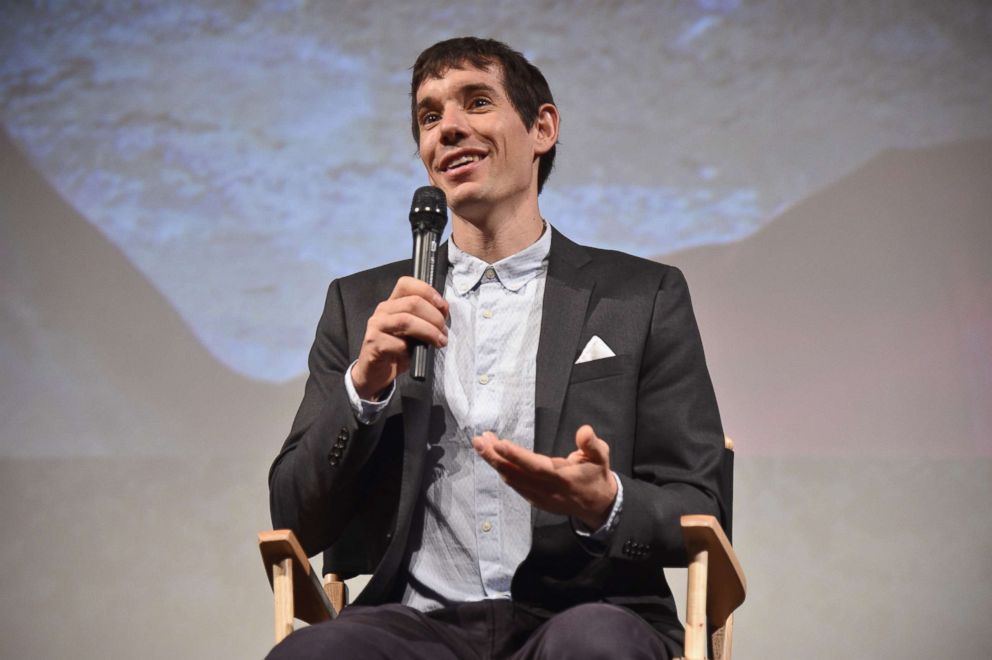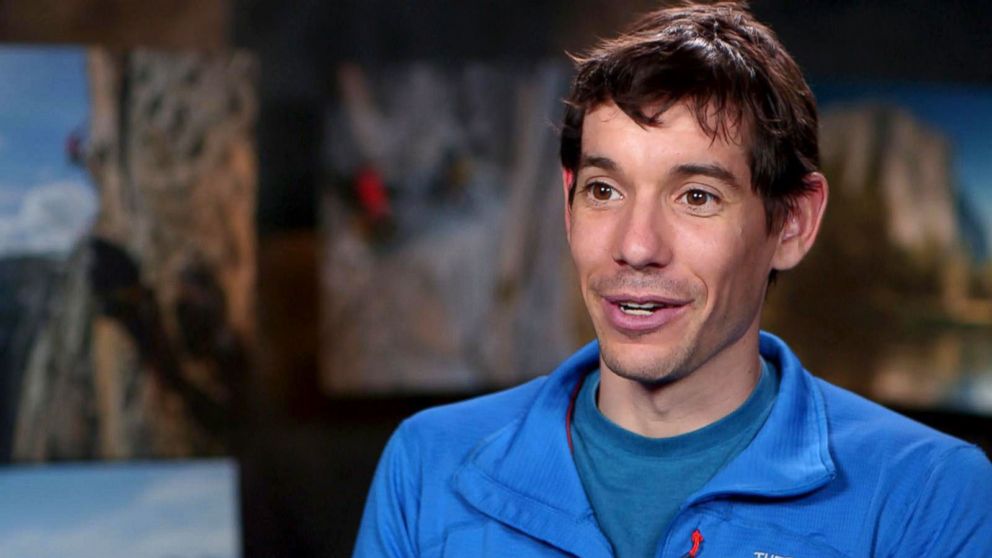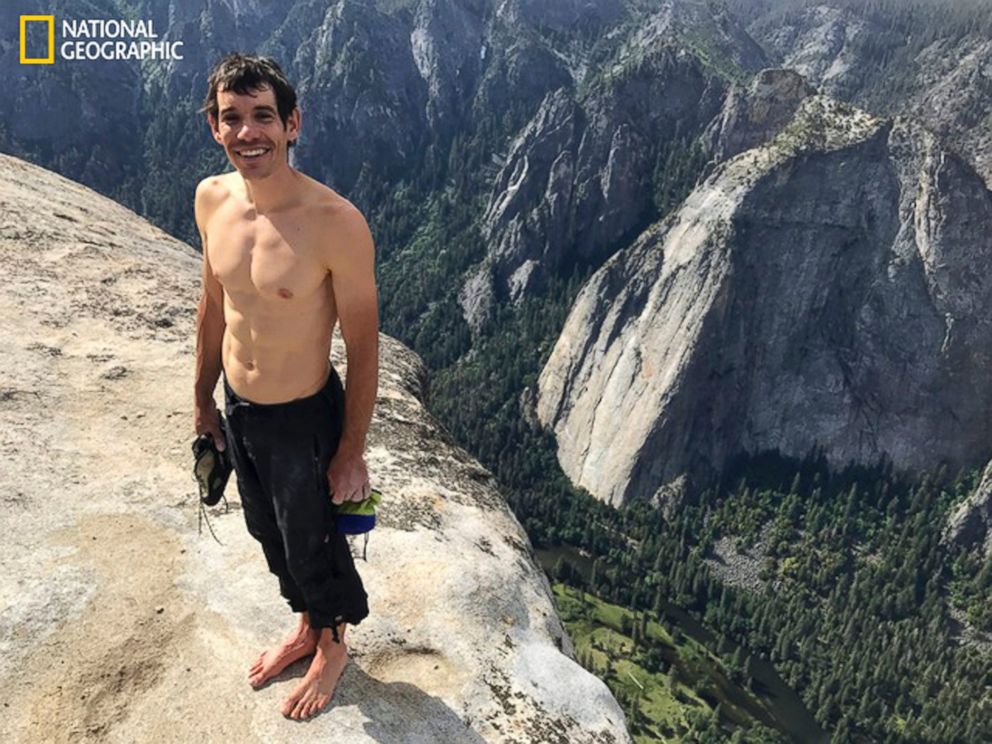Film chronicles climber's solo journey up Yosemite 's El Capitan with no gear
"Free Solo" captures Alex Honnold's struggles on and off the mountain.
In 2017, mountaineering wonder kid Alex Honnold did the unimaginable: He reached the top of El Capitan, a 3,000-foot rockface in Yosemite National Park, alone and without gear.
On Friday, the film chronicling his amazing and death-defying historic feat -- as well as the two-year journey to get there -- will be released.
The National Geographic documentary, titled "Free Solo," was shot by videographer Jimmy Chin and his wife, documentary filmmaker Elizabeth Chai Vasarhelyi.
In June 2017, Honnold, now 32, of Sacramento, became the first person to ever climb to the rock's summit solo and without gear or ropes, otherwise known as "free soloing."
It took him nearly four hours to scale the massive, 3,000-foot wall. At the time, he told ABC News that he'd spent about 10 years climbing different parts of El Capitan and had climbed the wall about 60 times with ropes.

"As a kid, when I would go camping and looking at the wall. I used to think that just climbing it seemed immense. It's unfathomably large," he told ABC News recently. "It took me years to sort of wrap my head around the idea of that being possible by yourself, and then once I did that it was like you know if I can climb it in better ... you know basically as a progression. ... Then over the last couple of years, it was like, 'Oh, maybe I could free solo then.'"
For the film, Chin and Vasarhelyi followed him on his journey, both on and off the mountain.
"Part of the appeal of free soloing is to take something that seems fundamentally scary and to make it feel comfortable and controlled and, you know, to take something that seems impossible and then to make it feel normal," Honnold said.
Chin said that when Honnold came to the couple initially about making a film about him free soloing, he and his wife took several months to consider the idea.
In the end, though, Chin said he and Vasarhelyi believed in Honnold's ability to reach the summit.
"The first challenge and foremost challenge in everybody's mind was the risk and the risk of death and Alex's safety," Vasarhelyi said. "To even take on the filmmaking challenge was, I mean, the wall is huge, and it took a very specialized type of team and I could do it."
Chin said almost the entire crew consisted of professional climbers that could also film video.

Honnold spent the better part of two years prepping for the ascent. His preparations were meticulous because one wrong move on the climb could result in death.
"The whole point of all the preparation is to get to the point where you can just shut your mind off and perform," he said.
The film didn't just capture Honnold's struggles. It also revealed the emotional toll that climbing took on his loved ones, including girlfriend Sanni McCandless.
Honnold told ABC News that there had not been many times in his career that he'd done a big climb and also been in a serious relationship.
But, he said, McCandless had told him, "You don't need to break up with me to climb -- you can have both."
"That was one of the first times it was presented to me," he said. "I was like, 'Really? Can I do that?'"
Honnold said, however, that she was not present as he climbed El Capitan.
Despite the heart-pounding risks, Chin called Honnold's climb "one of the greatest athletic feats of any kind ever."
"It's very unbelievable," he said.
"It was beautiful, absolutely amazing," Vasarhelyi said.
Honnold said the risks that come with his sport are "part of life."

"When you spend 20 years climbing full-time ... like a professional skier or somebody who's out in the mountains full, full time, you know avalanches happen, like things happen," he said. "There's a certain amount of random chance. ... I've sort of accepted that as being, being somebody that's on the mountains all the time."
Honnold told ABC News that while he'd likely be climbing without a rope "until I'm an old man," he didn't think he'd be taking on many big projects like El Capitan in the future.
"What's bigger than El Cap?" he said. "It might take the next generation to figure out what's bigger. ... I'm pretty comfortable saying this represents the best that I'll do."




